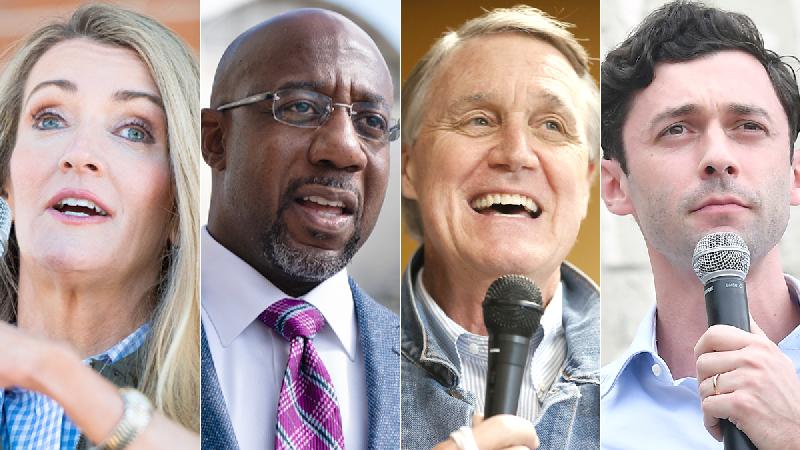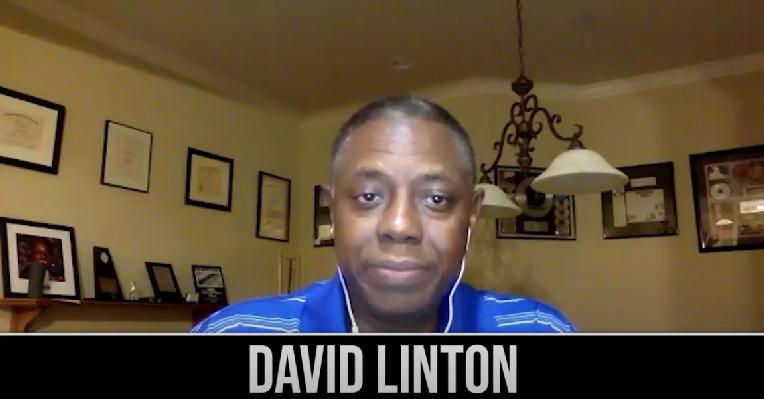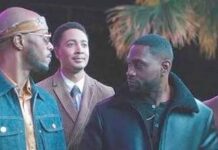*There’s no question. The year 2020 will be remembered for consistent twists and turns, ranging from a game-changing pandemic to a divided United States of America, not to mention a public radar full of activism.
Politically speaking, an epic voter turnout spoke volumes, with numbers not seen in more than a century. Yes, online efforts (most notably, social media) factored heavily into folks casting their ballot in person and via mail. But it was a long-forgotten medium that rose to the same level with reaching the masses in this crucial election year.
That medium? In a word: Radio.
Online activism may be the latest mobilizer, but this year proved the airwaves are alive and still kicking in making a statement for all to hear.
“We always hear that radio is the lost leader, it’s dying. But at the end of the day, radio still remains a very affordable medium. It’s still where people go for immediate news and traffic because it’s still local. You can get your music from a lot of different sources, but if you want to know what’s going on in your backyard, what’s going in your community, you still have to turn on the radio,” David Linton, Program Director, WCLK/Clark Atlanta University, told EURweb’s Lee Bailey.
The power of radio is not lost on Linton, a member of Black Radio United for the Vote collective, a collaborative effort between 11 Atlanta-based black radio stations and the Urban League of Greater Atlanta. The initiative, spearheaded by KISS 104.1/CMG Atlanta Director of Branding and Programming Terri Avery, spawned from a discussion among several black radio program directors on creating positive changes while looking toward the future. After Atlanta gained national attention for voter suppression during the past primary election, the discussion was sparked.
U NEED TO WATCH THIS: Body-cam Confession from Man Who Filmed Ahmaud Arbery Killing [VIDEO]
Divided into phases, Linton outlined the objective of Black Radio United for the Vote. Phase one: Align with Urban League of Greater Atlanta to “register people to vote, followed by Phase Two: “Get people mobilized during the early voting process and mail-in ballots.
“And finally, of course, getting people to polls on Nov. 3,” Linton said. “We worked with a series of community leaders and organizations that were funneled through the Urban League of Greater Atlanta.”
Radio stations involved with Black Radio United for the Vote include KISS 104.1 (WALR/Cox Media Group), V-103 (WVEE-FM/Entercom), News & Talk 1380 (WAOK-AM/Entercom), Majic 107.5/97.5 (WAMJ/ WUMJ/Radio One), Hot 107.9 (WHTA/Radio One), Praise 102.5 (WPZE/Radio One), Classix 102.9 (WAMJ-HD2/Radio One), Streetz 94.5 (WWSZ/Core Radio Group), O.G 97.9 (WWWQ-HD3/Cumulus Media), Jazz 91.9 (WCLK/Clark Atlanta University), and Smooth Jazz 101.1/100.1 (WJZA/Davis Broadcasting).
The collective assembled in a major way, creating BlackRadioUnited.com and dedicating five full days of on-air programming to educating, informing and inspiring Atlanta’s black community to register to vote, check their current registration status, voting, and participating in the 2020 Census. A single day of unified broadcasts from the 11 stations resulted in over 1.2 million listeners receiving information on voting in the 2020 election, according to a press release. Overall, the five days spanned from July through November 3, the day of the election.
Atlanta’s black radio stations only touched the surface of involved parties, Linton mentioned, adding that radio stations with any programming targeting the African-American community were a part of Black Radio United for the Vote.
KiSS 104 owner Cox Radio and its cluster of radio stations were fully on board as well as Davis Broadcasting, Clark Atlanta University and iHeart Radio, which upped the number of radio entities to 12.
“We would take one day. We did continuous messages one day that we set aside, where all radio stations were doing the same messaging. We were having community leaders and organizations on our airwaves talking about the importance of voting, hitting all the demographics because we had the hip-hop stations. We had urban stations. We had jazz stations, everybody who was targeted to the African-American community,” Linton remarked. “The initiative was very successful, as we all know what happened in Georgia in terms of having a record turnout with voting. We did it in a nonpartisan manner but again, a record turnout.”
Avery agreed.
“Black Radio United for the Vote made its mark driving people to the polls in record numbers in the Atlanta metro,” she added in a statement. “Partnership with the stations, as well as The Urban League of Greater Atlanta, proved that working together we can make a difference.”
“And because of that, we know that our efforts were very effective because we’ve all got the feedback from different segments of the community because radio is still where people go,” Linton said, noting how the “foundation” laid by the past was a guide to how things were done today with voter turnout. “You remember the days when black radio was that source of information for people. When people didn’t have TV’s they had radios. We were able to kind of harken back to that foundation and history of black radio. We didn’t really create anything new. We just sort of got back to the basics. And I think it was effective in so many ways.”
With things more sensitive than ever in current times, efforts by Black Radio United for the Vote could easily receive backlash. Fortunately, the group’s nonpartisan vibe prevailed, with its focus remaining intact.
“We didn’t receive any negative feedback,” Linton confessed, crediting the organization’s strategic planning for their desired end result. “ We met quite often to discuss strategy and to restructure strategies. We didn’t get any blowback because we approached it in a very nonpartisan manner. We really just wanted to make sure that people who listened to our respective radio stations were registered and knew where to go for their polling sites. We knew key dates that they needed to be aware of, as it related to deadlines for registration, deadlines for getting your absentee ballot, deadlines for voting early and voting on the day. And because of Covid, there were a lot of different locations. And so we were very strategic in making sure that people knew where those areas were.
“For example, the State Farm Arena, where the [Atlanta] Hawks and Mercedes-Benz Stadium, where the [Atlanta] Falcons play. Both of them, either during the primary or during the general election, offered themselves as a polling place be that we needed, according to CDC’s recommendations in this Covid pandemic era,” he continued. “So it was a coalition of various partners coming together. That’s how we were able to move. So again, we didn’t get blowback because we weren’t saying who to vote for. We was just telling you that you needed to vote and this is the procedure.”
The nonpartisan approach may have quelled nondemocratic voters and Trump supporters, but as the organization’s name lends itself to open criticism from those feeling Black Radio United for the Vote is only there for black radio listeners to benefit, Linton counters the argument, highlighting the content on the 11 stations as a universal language, regardless of race.
“I’m sure that we have our listenerships that are comprised of people of different political persuasions. We target to African-Americans in terms of our music and programming, but we know that everybody loves black music. So we feel that that’s not going to be exclusive. And in my format, jazz, I know we have a very diverse listenership. Even when it come to hip-hop, people are not looking at colors. They’re looking at the music. So the music touches everyone. But the messaging was just designed for whoever our listeners were at that given time,” the activist explained. “We weren’t showing any favoritism, but obviously we know who our predominant demographic is. So hey, somebody else got the message in the process. That’s cool too. It was all about educating our listeners.”
Linton’s comments come amid a tense time in Georgia. All eyes are currently on the Peach State, which is gearing up for two run-off elections for seats in the United States Senate, seats that can decide which political party holds the upper hand in Congress for the next four years.
Candidates for the Senate seats are Republican incumbent Senators Kelly Loeffler and David Perdue, and their Democratic challengers, Rev. Raphael Warnock and Jon Ossoff. Loeffler and Warnock recently sparred in an hour-long debate that saw Loeffler not acknowledging President-elect Joe Biden’s victory against current Commander-in-Chief Donald Trump.
Unlike Loeffler and Warnock, it was a one-man show with Ossoff. Perdue declined an invitation to participate in a single debate with his opponent. The runoff election for the Senate seats will take place on January 5, 2021. ABC News reported that Georgia voters are already casting their votes with more than 40,000 absentee ballots being returned and accepted by county election officials.

Assessing lessons learned from bringing more people to the polls to vote in the general election, David Linton emphasized the value of knowledge and being hands-on with doing what is needed to get people to cast their ballot.
“I think the thing that we really learned is that if people are given the information and understand what’s at stake, they will respond. Obviously, The last time we had a gubernatorial race, there were some almost 400,000 people purged from the voting polls. And 200, 000 of those got back. So we knew that we really needed to make sure that people need to get registered, that they knew that they had to have ID. That they needed to go to the right polling places because a lot of polling places were changed. We don’t poll the same place when you’re voting early as you do the day of the election,” he said. “And so we wanted to make sure that people knew where to go, how to go. And then we provided information on our airwaves for organizations that were getting people to the polls if they were elderly and they needed some assistance. And some of the mayors from the various suburbian cities out around metro Atlanta provided facilities that were available.”
“We were just a funnel of information and we were just a channel for all that information to be synthesized. And I can’t say enough about our partnership with the Urban League of Greater Atlanta because they were the ones who were really grabbing the people that we needed and putting us in touch with the organizations that we needed to, that would allow us to share the information with our listeners,” added Linton. “We had a direct link to the Secretary of State’s website so we could show people how to check their [ballot] after they mailed it in or to track their ballot to see that it was counted. So we got very hands-on in a lot of ways. Like I said, it was nonpartisan, but definitely with a purpose.”
As life after the runoff looms, the influence of Black Radio United for the Vote looks to linger as other areas in Georgia are inquiring on bringing the organization’s method of getting out the vote to their neck of the woods.
“I have stations in Columbus and some other entities in other parts of the state are now looking at doing something similar. I think the fact that we created this opportunity; it’s going to be duplicated. It’s been a pleasure to see that radio stations put aside the competition for the time being to help the people. If somebody got some information, we all shared it. If somebody cut a spot on their radio station, nobody was afraid to put that same spot on their radio station, although it had a voice from somebody from another station that’s in the market,” Linton stated.
“It was just really gratifying. And we learned that we can come together, we can work together and that radio is still where people still rely on for information. If it wasn’t the case, you wouldn’t have so many conservative radio stations on, if it wasn’t a profitable proposition. So again, I just think that we were able to demonstrate that black radio still has power.”
We Publish News 24/7. Don’t Miss A Story. Click HERE to SUBSCRIBE to Our Newsletter Now!








